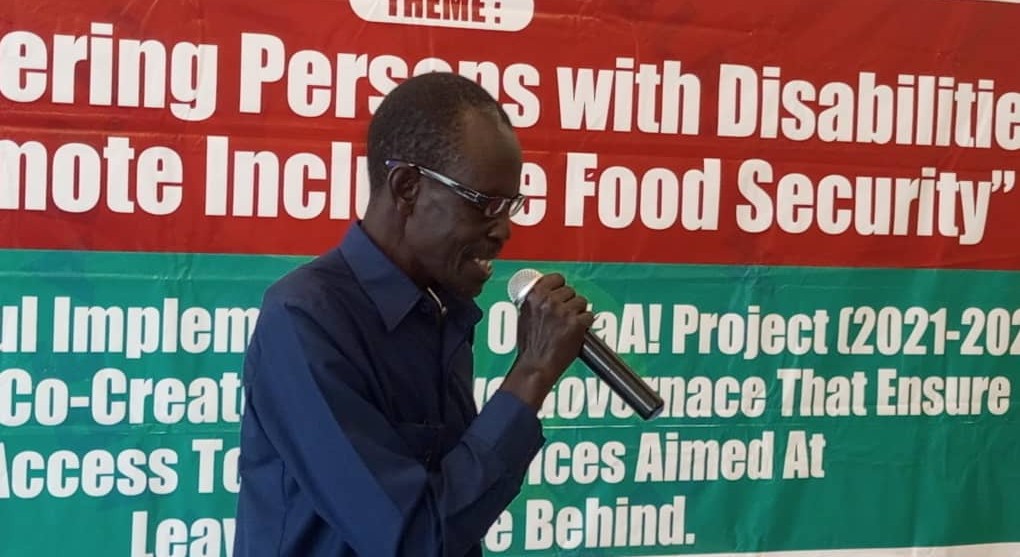
People with disabilities across South Sudan are calling on parliament to make sure the country’s national budget includes them, especially now that a key donor-supported project that had championed disability inclusion has ended.
The group of foreign organizations, which included ZOA, the African Disability Forum, See You Foundation, Light for the World, The Leprosy Mission Netherlands, VNG International, and The Hague Academy for Local Governance officially ended the project “We ARE ABLE,” in the country.
With their departure, disability rights advocates and the Union chairperson warn that government action is now critical to prevent people with disabilities from being left behind.
Augustino Wudu Elario, chairperson of the South Sudan Union of Persons with Disabilities, urged lawmakers to prioritize disability rights in the fiscal year budget.
“I demand and request the Members of Parliament to push for inclusion in the fiscal year budget. Though they said that the budgets have been top-down, I said no, we have to push. We have a lot of resources—we have fuel—and if one production is given to the people with disability, it will be good,” Elario said.
He also appealed to the outgoing partners to continue supporting advocacy efforts and consider donating project assets to the union.
“If there are any assets for this project, for example, if there is a vehicle, I agree that it can be donated to support the union. This is one of my opinions,” he added.
In response, Regina Ossa Lullo, the Director General of the National Ministry of Gender and Child Welfare, assured everyone that the government is committed to including people with disabilities in all areas of life, from schools to hospitals.
“There is a possibility to ensure that policies are followed, and we work on them with the Minister of Justice. We work hand in hand with the Ministry of Education to ensure that they also have their right to education. We also work with the Minister of Health to ensure that they have access to health services,” Lullo said.
She added, “the Ministry of Gender will continue to work with you, and we support the organization of persons with disability because it is part of our role.”
Advocates say that ensuring an inclusive budget is not just a legal obligation but a moral responsibility to guarantee equal participation in South Sudan’s development.
This responsibility is even stronger now that South Sudan has joined the international Treaty on the Rights of Persons with Disabilities, which President Salva Kiir signed into law on February 24, 2023.
This was a promise to people and the world that everyone will be included in the nation’s journey forward.

